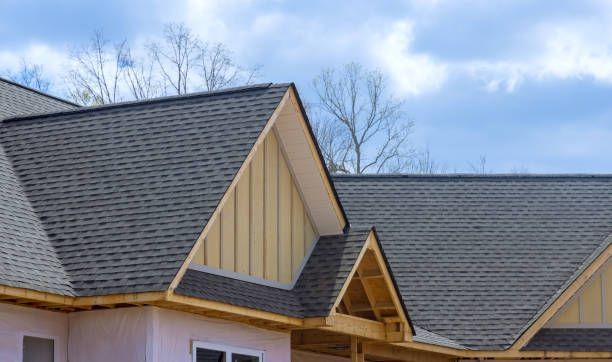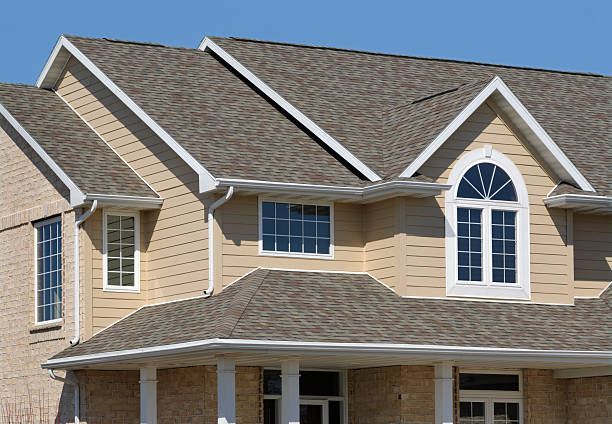Your Guide to Finding the Best Roof Repair Sealant
Your Guide to Finding the Best Roof Repair Sealant

Key Takeaways
- Roof Repair Sealants: Selecting the right sealant depends on roof material, climate, and the type of damage.
- DIY vs. Professional Application: Professional application is recommended for durability and long-term protection.
- Considerations: Weather conditions, roof material, and extent of damage are crucial in choosing the best sealant.
Your roof is one of the most critical components of your home, providing protection against the elements and ensuring your comfort. Over time, even the most durable roofs can develop cracks, leaks, or other signs of wear. When this happens, choosing the right roof repair sealant becomes essential to maintaining the integrity of your roof and avoiding more extensive damage. But with so many options available, how do you determine what is the
best roof repair sealant for your specific needs? In this guide, we'll explore everything you need to know about roof repair sealants, from the different types available to the importance of professional application.
Understanding Roof Repair Sealants
Types of Roof Repair Sealants
Roof repair sealants come in various forms, each suited for different types of roofs and specific needs. The most common types include silicone, polyurethane, and acrylic sealants, each offering unique benefits and drawbacks. But when you’re trying to decide what is the best roof repair sealant, it’s important to understand how each type performs under different conditions.
- Silicone Sealants: These are known for their flexibility and excellent resistance to weathering. Silicone sealants are particularly effective on roofs exposed to extreme temperatures and UV rays. They form a durable, watertight seal that lasts for years. However, silicone can be more challenging to apply and is typically more expensive than other options.
- Polyurethane Sealants: Offering strong adhesion and flexibility, polyurethane sealants are suitable for various roof types, including metal, wood, and concrete. They provide excellent resistance to abrasion and weather conditions, making them ideal for roofs that experience heavy foot traffic. However, polyurethane sealants may require a primer before application and can be more labor-intensive to apply.
- Acrylic Sealants: Acrylic sealants are water-based and easy to apply, making them a popular choice for DIY enthusiasts. They are best used for minor repairs on a variety of materials, such as asphalt and metal. However, acrylic sealants may not be as durable as silicone or polyurethane, especially in areas with extreme weather conditions.
Implications of Choosing the Wrong Sealant
Selecting the wrong sealant for your roof can lead to more significant problems down the road. For example, using an acrylic sealant on a roof that frequently experiences heavy rain or snow can result in the sealant breaking down prematurely, leading to leaks and water damage. Similarly, choosing a sealant that doesn't adhere well to your roofing material can result in poor coverage, leaving your roof vulnerable to further damage. This underscores the importance of understanding your roof's specific needs and consulting with a professional before making a decision. If you're asking yourself what is the best roof repair sealant, it's crucial to consider these factors to avoid costly mistakes.
The Importance of Professional Application
DIY vs. Professional Services
While the idea of applying a roof repair sealant yourself may seem cost-effective, the reality is that proper application requires skill and experience. A professional roofer understands the intricacies of different roofing materials and the appropriate sealants to use. They also have the tools and expertise to identify any underlying issues that might not be visible to the untrained eye.
Attempting a DIY repair might save money upfront, but improper application can lead to issues like leaks, mold growth, and structural damage, which can be far more costly to repair. In contrast, a professional roofer can ensure that the job is done correctly the first time, providing a lasting solution that protects your home for years to come. If you’re still pondering what is the best roof repair sealant for your home, consulting with a professional can provide the guidance you need.
Insights into Long-Term Roof Maintenance
The Role of Weather Conditions
Weather conditions play a significant role in the effectiveness and longevity of roof repair sealants. Different climates require different types of sealants to ensure optimal performance.
- Heat and UV Exposure: Constant exposure to the sun's UV rays can cause some sealants to crack and degrade over time. Silicone sealants, however, are particularly resistant to UV radiation and remain flexible even in intense sunlight, making them a preferred choice for roofs in hot, sunny climates.
- Cold Temperatures: In colder climates, some sealants can become brittle and lose their effectiveness, leading to cracks and leaks. Polyurethane sealants are a better option for these conditions as they maintain their flexibility and adhesion even in low temperatures.
- Moisture and Humidity: High humidity and frequent rainfall can cause certain sealants to break down prematurely. Acrylic sealants, for instance, may not perform well in consistently wet environments. Silicone or polyurethane sealants are better suited for these conditions, offering superior moisture resistance.
Counter Arguments and Perspectives
The Appeal of DIY Solutions
DIY roof repairs have become increasingly popular due to the availability of tutorials and products at local hardware stores. Many homeowners believe that with the right tools and a bit of effort, they can effectively repair their roofs and save money in the process.
However, this approach often overlooks the complexities involved in proper roof repair. Applying a sealant may seem straightforward, but achieving a lasting repair requires understanding the nuances of different roofing materials and the conditions under which they perform best. A poorly applied sealant can fail within months, leading to more extensive damage and higher repair costs. Additionally, DIY repairs may void any warranties on your roof, leaving you financially responsible for any future issues.
The Value of Professional Services
On the other hand, professional roofing services offer expertise and experience that can't be replicated by a DIY approach. Professional roofers have the knowledge to accurately assess the condition of your roof, recommend the best sealant for your specific needs, and apply it in a way that ensures durability and longevity. By investing in professional services, you're ensuring that your roof remains in good condition for years to come, ultimately saving you time, money, and stress.
If you're seeking professional advice on what is the best roof repair sealant for your home,
Delaware Roofing is here to help. Located at 109 Chartwell Court, Bear, DE 19701, we specialize in providing top-notch roofing services tailored to your specific needs. Whether you need a thorough inspection or expert sealant application, our team is ready to assist. Give us a call today at 302-377-1193 to schedule a consultation and ensure your roof gets the best care possible.
Conclusion
Selecting the best roof repair sealant is a critical decision that should not be taken lightly. With the right knowledge and guidance, you can make an informed choice that protects your home and extends the life of your roof. While DIY solutions may seem appealing, the risks often outweigh the benefits. Professional application not only guarantees a thorough and lasting repair but also provides peace of mind, knowing that your roof is in expert hands.
Don’t leave your roof’s protection to chance. Contact Delaware Roofing today to discover what is the best roof repair sealant for your specific needs and let our professionals ensure your home remains secure and dry.
FAQs
Q: What is the best roof repair sealant for extreme weather conditions?
A: Silicone sealants are generally the best choice for extreme weather conditions due to their flexibility and resistance to UV rays and temperature fluctuations.
Q: Can I apply roof repair sealant myself?
A: While it’s possible to apply roof repair sealant yourself, professional application is recommended to ensure long-lasting results and to avoid potential issues like leaks or voided warranties.
Q: How often should I reapply roof repair sealant?
A: The frequency of reapplication depends on the type of sealant and the weather conditions in your area. Typically, reapplication is needed every 5-10 years, but it’s best to have a professional inspect your roof regularly to determine the appropriate schedule.



